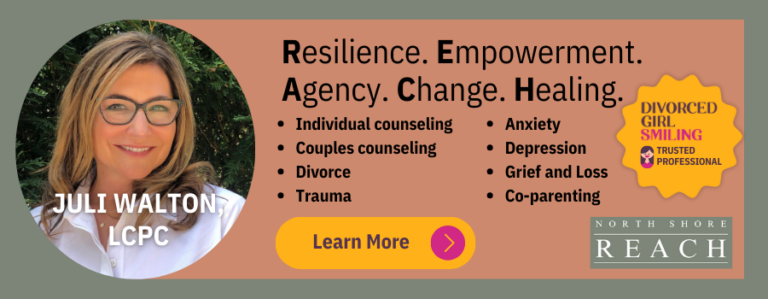The holiday season can be dark and depressing for those going through a divorce or already divorced. Still, I think we can all find gratitude every single day: our health, our children, our loved ones, our homes, the outdoors, our career, our passions.
As lonely as being divorced can seem, it is important to recognize gratitude and verbalize it. The article below is a guest post by Certified Integrative Health Coach, Karen Malkin on reasons why feeling and expressing gratitude will not only make you feel better, but it is proven to actually make you healthier!
Health Benefits From An Attitude of Gratitude by Karen Malkin
This time of year, our thoughts naturally turn to giving thanks for everything in our lives that bring us happiness and joy. But did you know that cultivating an attitude of gratitude can do more than make you happier? Adopting a grateful mindset as your default can also deliver both mental health and physical health benefits that can greatly improve your life.
Maintain a positive attitude to:
CALM DOWN — Cultivating gratitude and other positive emotions can reduce stress hormones like cortisol by as much as 23%.1 A study of 400 people, 40% of whom had sleep disorders, shows making nightly lists of things they are grateful for can also improve the duration and quality of sleep.2
KEEP YOUR HEART HEALTHY — Recalling feelings of appreciation and listing things for which you’re grateful can protect your heart by decreasing blood pressure and lowering heart rate variability.3
SLIM DOWN — In a study of undergraduate students, those who were grateful were shown to spend an average of 36% more time exercising per week—they also took better care of their health overall.4
BOLSTER YOUR IMMUNE SYSTEM — Gratitude is linked with optimism, which can improve the body’s immune response in certain situations, resulting in an increase in white blood cells needed to fight disease.5
LOWER RISK OF DEPRESSION — Scientists say that shifting your thinking from negative outcomes to positive ones elicit a surge of feel-good hormones like dopamine, serotonin, and oxytocin, and help you build more enduring personal connections. These things, in turn, can help ward off depression.6
To reap the benefits, you first need to cultivate practices that will help you build your gratitude “muscle”! Here are three things to try, starting today:
1. Keep a gratitude journal. All it requires is noting one or more things you are grateful for on a daily basis. You don’t need a fancy notebook to do this as it’s more about the ritual of writing down daily the positive things you appreciate.
2. Replace negative self-talk with positive comments to condition yourself to be kind to yourself. Bashing yourself takes a toll on your health.
3. Uplift someone else by doing something kind and notice how it impacts your energy and mood.

Karen Malkin is a Certified Integrative Health Coach and Lifestyle Practitioner, and Eating Psychology Teacher. To learn more, visit: KarenMalkin.com.
References
[1] The Impact of a New Emotional Self-Management Program on Stress, Emotions, Heart Rate Variability, DHEA, and Cortisol. Integrative Physiological and Behavioral Science.https://www.ncbi.nlm.nih.gov/
[2] Effects of Constructive Worry, Image Distraction, and Gratitude Interventions on Sleep Quality: A Pilot Trial. Applied Psychology: Health and Well-Being. psycnet.apa.org/index.cfm?
[3] The Effects of Emotions on Short-Term Power Spectrum Analysis of Heart Rate Variability. The American Journal of Cardiology. heartmath.org/research/research-library/basic/
[4] Counting Blessings Versus Burdens. Journal of Personality and Social Psychology.www.ncbi.nlm.nih.gov/pubmed/12585811
[5] Optimism, Goal Conflict, and Stressor-related Immune Change. Journal of Behavioral Medicine.link.springer.com/article/
[6] Enhancing well-being and alleviating depressive symptoms with positive psychology interventions: A practice-friendly meta-analysis. Journal of Clinical Psychology.























I think you talk right about the gratitude! Now i follow you 🙂
Very nice thoughts.
I’m thrilled to be able to share my knowledge with you. Posters have a significant impact on the film business, and may be found on everything from historical movie posters to vinyl records. They are a fun and unique way to add a sense of nostalgia to your site, ranging from the golden age of Hollywood to more modern designs that reflect current trends. If you want to add a vintage photo booth backdrop or vintage movie memorabilia to your home.